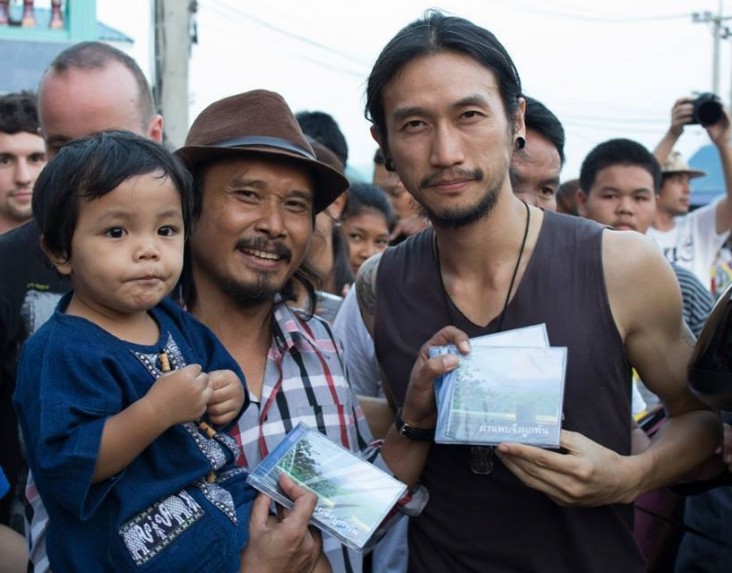
Dec. 2014—Music moves people and messages in today’s world, and through the USAID-sponsored MTV EXIT campaign, top artists around Asia have taken center stage to energize youth to work to end human trafficking.
Using the MTV brand and leveraging over 800 private sector company partners, MTV EXIT helped raise awareness among over 100 million people on the dangers of being sold into the sex trade, forced into exploitative slave labor or crippling domestic servitude. Through music, gripping videos and on-the-ground outreach, the campaign produced 40 concerts and 600 community events and trained more than 1,200 youth on how to create their own movements to end trafficking.
MTV EXIT launched in October 2006 and concluded in June 2014.
Live events reached 1.8 million people, and tens of millions more tuned into MTV EXIT’s television programs or logged onto its website and social media pages. The project informed youth about the dangers of sexual exploitation of women and children by having survivors tell their stories.
This year, MTV EXIT appealed to young boys and men from Burma, Cambodia and Thailand by enlisting the help of Thailand’s most popular band, BodySlam, to bring attention to trafficking and exploitation in the Thai fishing industry.
“We’re proud to be part of this event and hope that, through our music, we can bring attention to this issue,” said Athiwara Khongmalai, the lead singer of BodySlam. “We’re very excited to see young Thais unite in the fight against human trafficking.”
According to the International Organization for Migration, more than 11 million Asians are coerced into jobs they cannot physically leave. A majority of trafficking happens in Asia, particularly Southeast Asia and parts of South Asia. The project focused on six priority countries—Burma, Cambodia, Indonesia, the Philippines, Thailand and Vietnam.
Regional artists took to the stage to help spread the word. “I had the unique opportunity to travel across Cambodia with the MTV EXIT campaign,” said Cambodian hip-hop artist Pou Khlaing. “It had the ability to captivate an audience like no other non-government organization could. It gave young people in my country a voice to fight human trafficking, and I’m so proud to have been a part of it.”
Today, almost one in five victims is between the ages of 15 and 24. MTV EXIT’s youth engagement strategy trained youth ambassadors to lead their own events and activities back home to encourage young people to join the global fight against human trafficking. One youth leader from Indonesia, Doni Marmer, held an online course about human trafficking that targeted college students and reached nearly 400 people.
“I believe in freedom, and all humankind should be granted this the day they are born,” said Marmer. “[There should be] no more mistakes like our past long history about slavery.”
In addition to its successful campaign against human trafficking, MTV-EXIT became part of USAID’s global development model of public-private partnerships, leveraging the equivalent of $133 million in support from over 600 private sector and broadcast companies for the Agency’s development goals. Live music events provided a strong platform for engagement with government, NGOs, media and private sector partners.
In the campaign's final year, millions of people gained access to MTV EXIT’s counter-trafficking activities such as documentaries, public service announcements and concerts. The project aired nine programs in nine languages totaling more than 1,000 broadcasts. It also conducted 45 youth-related events including concerts, informational sessions, screenings and roadshows reaching more than 10,000 youth.
“I am certain that MTV EXIT played a bigger role in protecting our younger generation than we will ever know,” said Le Luong Minh, the secretary-general of the Association of Southeast Asian Nations.
LINKS
Sustaining the “Amazon of the Seas”
Follow @USAIDAsia, on Facebook, on Flickr, on YouTube







Comment
Make a general inquiry or suggest an improvement.